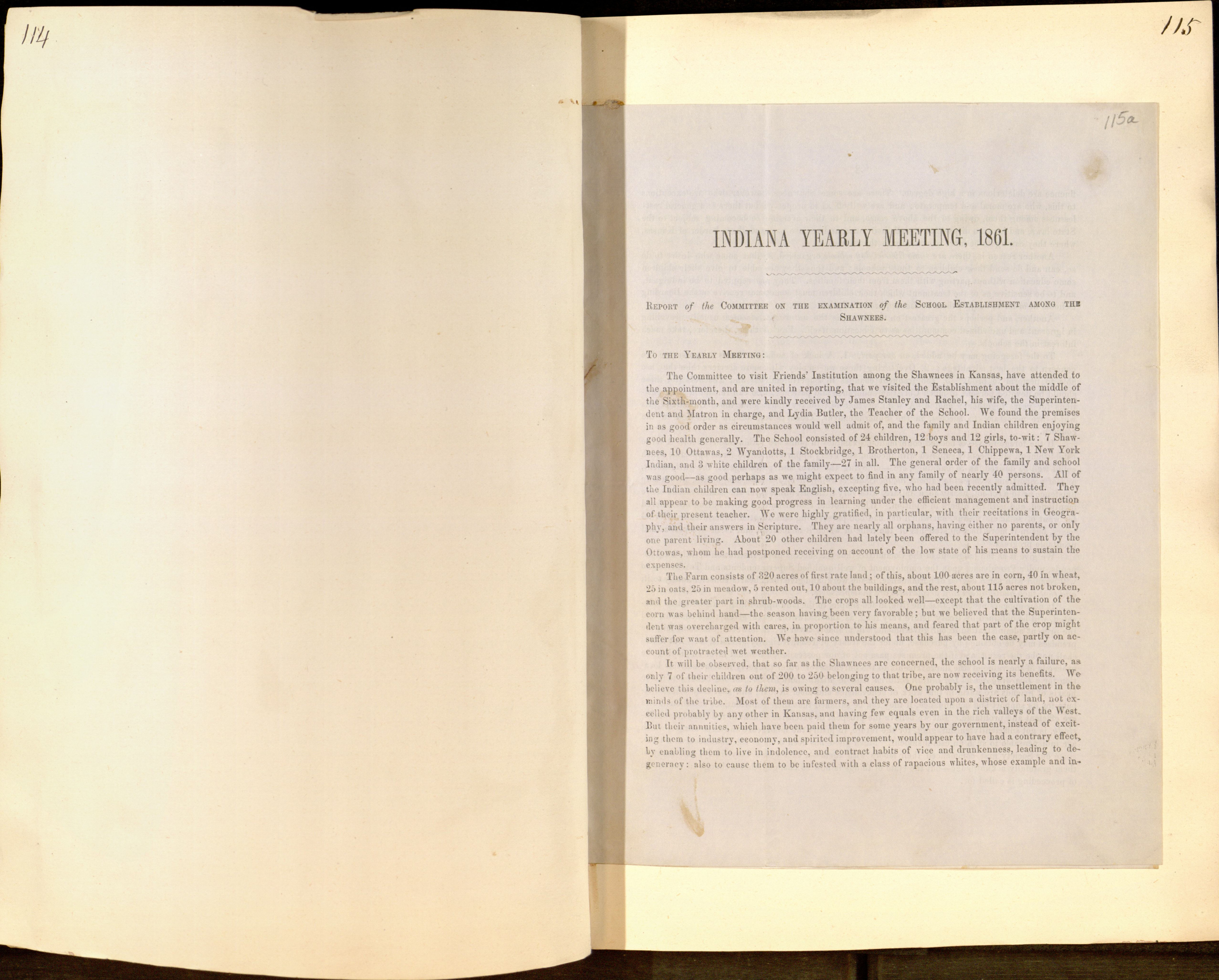INDIANA YEARLY MEETING,Organization Information
1861. REPORT of the COMMITTEE ON THE EXAMINATION of the
SCHOOL ESTABLISHMENT AMONG THE
SHAWNEESOrganization Information .
TO THE YEARLY MEETING:
The Committee to visit Friends’ Institution among the Shawnees
the appointment, and are united in reporting, that we visited the Establishment about the middle of
the Sixth-month, and were kindly received by James Stanley
dent and Matron in charge, and Lydia Butler
in as good order as circumstances would well admit of, and the family and Indian children enjoying
good health generally. The School consisted of 24 children, 12 boys and 12 girls, to-wit: 7 Shaw-
nees,
Indian, and 3 white children of the family—27 in all. The general order of the family and school
was good—as good perhaps as we might expect to find in any family of nearly 40 persons. All of
the Indian children can now speak English, excepting five, who had been recently admitted. They
all appear to be making good progress in learning under the efficient management and instruction
of their present teacher. We were highly gratified, in particular, with their recitations in Geogra-
phy, and their answers in Scripture. They are nearly all orphans, having either no parents, or only
one parent living. About 20 other children had lately been offered to the Superintendent by the
Ottowas
expences.
The Farm consists of 320 acres of first rate land; of this, about 100 acres are
in corn, 40 in wheat,
25 in oats, 25 in meadow, 5 rented out, 10 about the
buildings, and the rest, about 115 acres not broken,
and the greater part
in shrub-woods. The crops all looked well—except that the cultivation of the
corn was behind hand—the season having been very favorable; but we believed
that the Superinten-
dent was overcharged with cares, in proportion to his
means, and feared that part of the crop might
suffer for want of attention.
We have since understood that this has been the case, partly on ac-
count
of protracted wet weather.
It will be observed, that so far as the Shawnees
only 7 of their children out of 200 to 250 belonging to that tribe, are now receiving its benefits. We
believe this decline, as to them, is owing to several causes. One probably is, the unsettlement in the
minds of the tribe. Most of them are farmers, and they are located upon a district of land, not ex-
celled probably by any other in Kansas
But their annuities, which have been paid them for some years by our government
ing them to industry, economy, and spirited improvement, would appear to have had a contrary effect,
by enabling them to live in indolence, and contract habits of vice and drunkenness, leading to de-
generacy: also to cause them to be infested with a class of rapacious whites, whose example and in-

